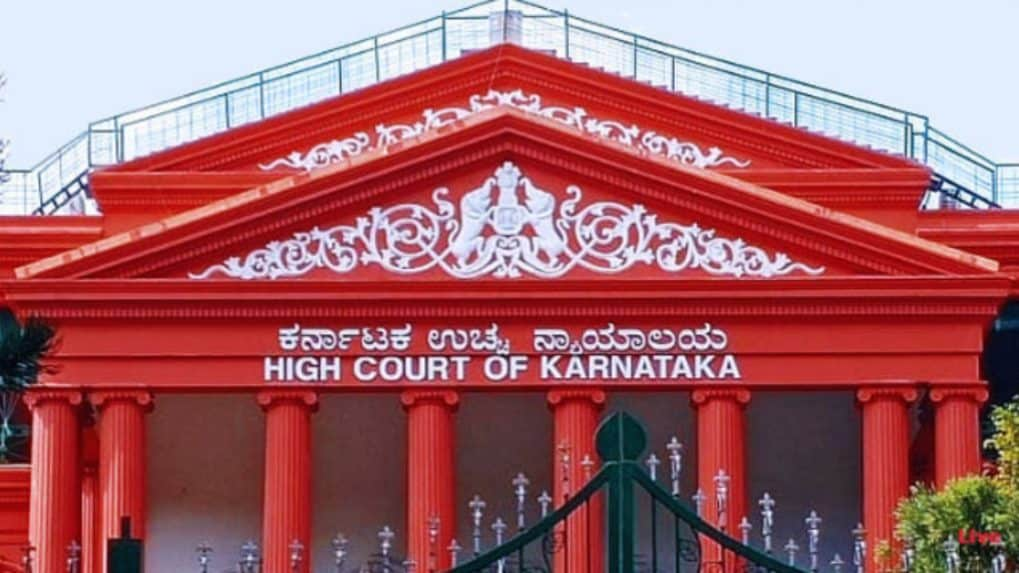Digital
Why OpenAI is hiring 100 ex-bankers: Inside the ChatGPT-maker's secret project to automate Wall Street's grunt work

The Karnataka High Court on Saturday heard a writ petition filed by Head Digital Works, the parent company of the real-money gaming platform A23, challenging the newly enacted Promotion and Regulation of Online Gaming Act, 2025. The Bench, led by Justice B.M. Shyam Prasad, directed the Union government to file its response by September 8.
Senior Advocate C. Aryama Sundaram, appearing for Head Digital Works, argued that the law passed by the Centre violates multiple constitutional rights, including the fundamental right to carry on trade and business. He warned that the legislation threatens lakhs of jobs linked to India’s burgeoning online gaming sector. Sundaram urged the court to ensure that the Act is not notified until the matter is fully heard. He also requested that the government provide at least one week’s prior intimation before notifying the law, so that affected stakeholders could seek appropriate legal remedies.
On behalf of the Centre, Solicitor General of India Tushar Mehta and Additional Solicitor General N. Venkataraman defended the government’s position. They maintained that once Presidential assent is received, the law must be notified, leaving little room for delay. Mehta also underlined that the case raises a broader question regarding jurisdiction—whether the Centre or individual states hold regulatory authority over the real-money online gaming industry.
Head Digital Works in its 396-page petition, a copy of which is with Storyboard18, Head Digital Works has challenged the constitutionality of the Online Gaming Act, arguing that it infringes upon multiple fundamental rights guaranteed under the Constitution.
Key constitutional violations cited:
Article 19(1)(g): Right to practice trade or business. The petition underscores that the Supreme Court and various High Courts have consistently recognized games of skill—even when played for stakes—as a legitimate business, distinct from gambling.
Article 14: Equality before law. The company contends that the Act is “manifestly arbitrary” because it equates law-abiding domestic operators with illegal offshore betting platforms.
Articles 19(1)(a) and 21: Freedom of expression and right to livelihood. According to the petition, these rights are directly curtailed by the sudden prohibition.
The filing also refers to past rulings of the Madras, Kerala, and Karnataka High Courts, which had struck down similar blanket bans imposed by state governments on online skill gaming. Appeals in those cases are currently pending before the Supreme Court.
Head Digital Works, which runs A23, stated that it employs 606 people directly and contributes substantially to government revenues. Since inception, the company claims to have paid over ₹1,643 crore in GST and nearly ₹96 crore in service tax (pre-GST). In FY 2024–25 alone, it deposited ₹687 crore in GST.
Broadly, the petition notes, the online gaming industry contributes ₹6,500–₹6,800 crore in direct taxes and nearly ₹75,000 crore in indirect taxes annually, while supporting over two lakh jobs.
The company expressed concern that the Act was enacted without any public consultation or stakeholder dialogue, despite years of structured discussions between the Ministry of Electronics and Information Technology (MeitY) and the industry. It highlighted that earlier amendments to the IT Rules, 2021, had already introduced a framework for self-regulatory bodies in online gaming—provisions that were never implemented.
“It is astonishing that after promoting the sector through initiatives like the Shillong Centre of Excellence in Online Gaming and the Bharat Tech Triumph Program, the Union Government has overnight criminalized the very industry it once supported,” the petition states.
To counter concerns around player safety, the petition emphasizes that operators like A23 follow responsible gaming protocols, including mandatory KYC verification, strict 18+ age restrictions, deposit limits, self-exclusion tools, and certified RNG (Random Number Generator) technology to ensure fair play. Independent audits and certifications from iTech Labs and Gaming Laboratories International have further validated the integrity of its platforms.
In a wide-ranging interview with Storyboard18, Sorrell delivers his frankest assessment yet of how the deal will redefine creativity, media, and talent across markets.